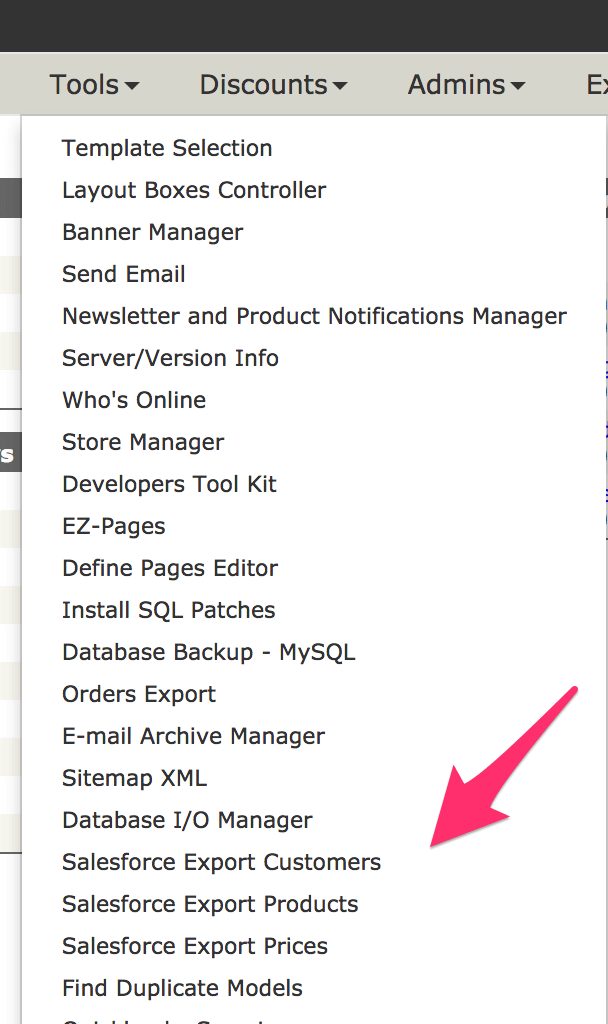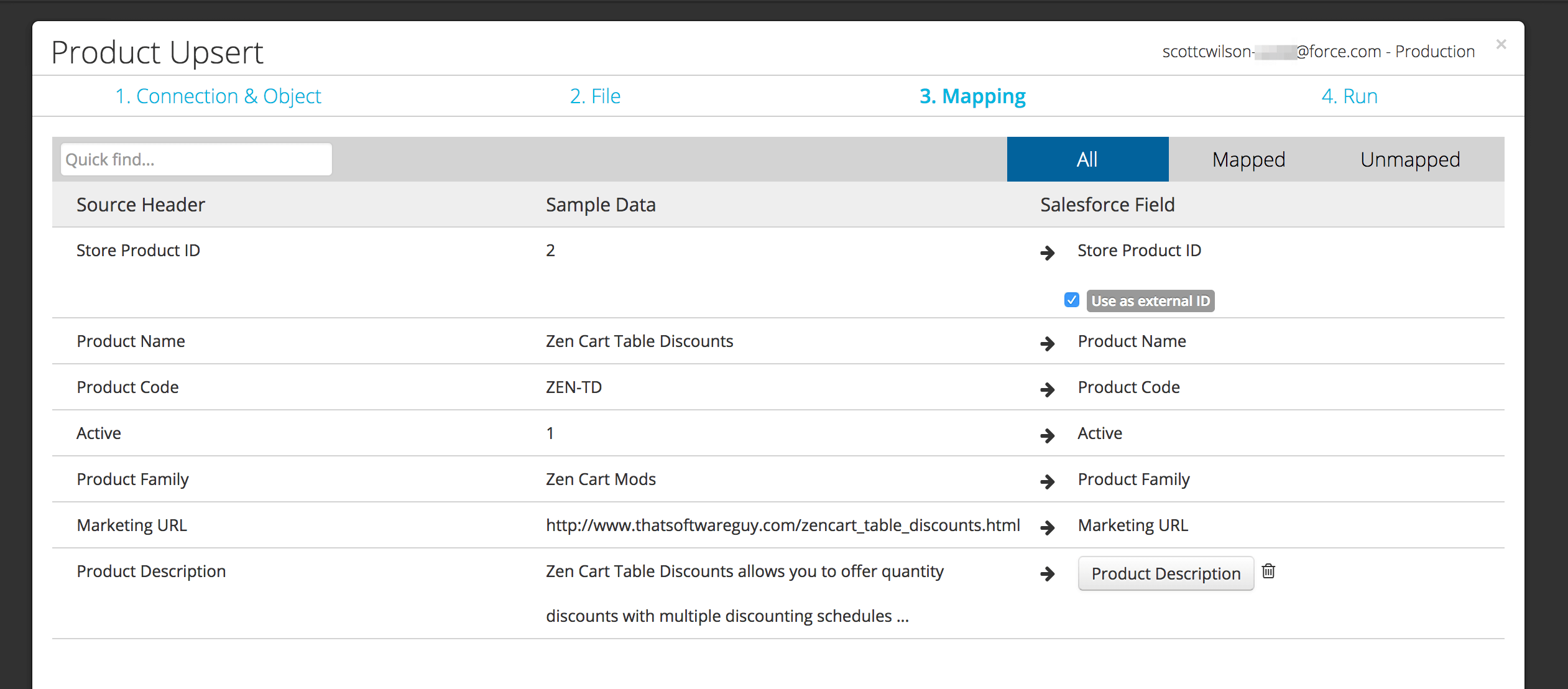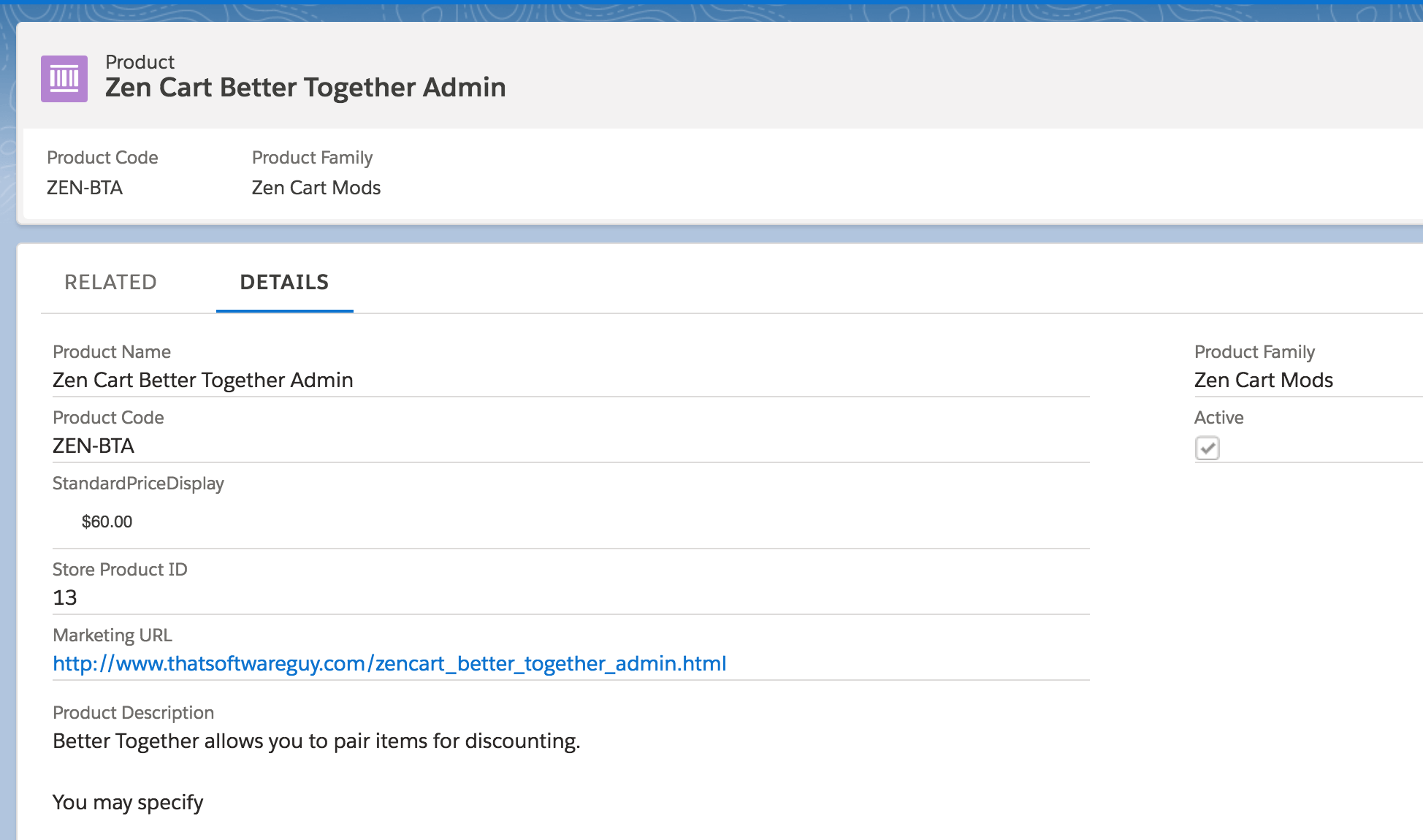Zen Cart to Salesforce Products Import
Getting your Zen Cart data into Salesforce starts with import your customers from Zen Cart to Salesforce. And many people stop there too! In particular, with the lower editions (such as Salesforce Essentials), you can't produce quotes, so you don't need product data. But if have the Professional Edition, and you want to do more with Salesforce, you'll need to set up your product list.
Now you'd think that products would be on the Data Import Wizard, but surprise - they're not! So how do you import them?
Actually, it's easy: come work with me and I'll help you!

I created a Zen Cart tool which exports product data from the Zen Cart database into a CSV for import into Salesforce. It's called Salesforce Export Products, and it's available from the your Zen Cart Admin Tools menu. It creates a file called products.csv.

To import the products CSV into Salesforce, I use dataloader.io, which creates Product objects. You can read about importing using dataloader.io if you're new to it.
Here is the mapping I used. (Table aliases: p = products; pd = products_description.)
| Salesforce | Zen Cart |
|---|---|
| Store Product ID A custom field defined as an External ID | p.products_id |
| Product Name | pd.products_name |
| Product Code | p.products_model |
| Active | p.products_status |
| Product Family | User Defined |
| Product Description | pd.products_description |
| Marketing URL | pd.products_url |
In dataloader.io, click New Task, then Import, and select the Product Object, then click Next. Do an upsert.io so new records will be inserted but existing records will be updated, so there's no duplication. Since you don't have the Salesforce ID for your product records, you want to match on the Store Product ID.
Dataloader.io Upsert for Products with Product ID Match

Alternatively, you could match on the model number (which is called Product Code in Salesforce). Note: The use of products_model as a unique identifier is facilitated by the use of my mod Find Duplicate Models.

Once the update is done, you'll get a success message from dataloader.io:
Dataloader.io Showing Successful Load

Going back to Salesforce, here's what my Zen Cart product data looks like in Salesforce Lightning:
Salesforce Showing Zen Cart Product Data

Export is incremental, so once you have done an initial export, only new or changed records are exported. No CSV is produced if there are no new or changed records.
Incremental Export of Zen Cart Product Data

Once a product is all set up and, the details page looks like this:
Product Detail Page

You'll notice the price appears on the detail page; this is a little bit of VisualForce logic on the Product Details page. Of course, it also depends on setting product prices, which we'll do in the next step: Zen Cart Products Prices to Salesforce.
If you're a developer, you can access the source for these scripts: just go to Zen Cart to Salesforce on Github. And if you're not, come work with me and I'll do it for you!
 eCommerce with Zen Cart!
eCommerce with Zen Cart!